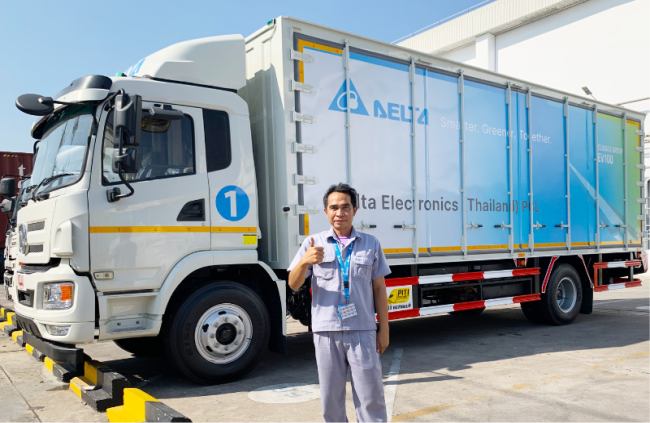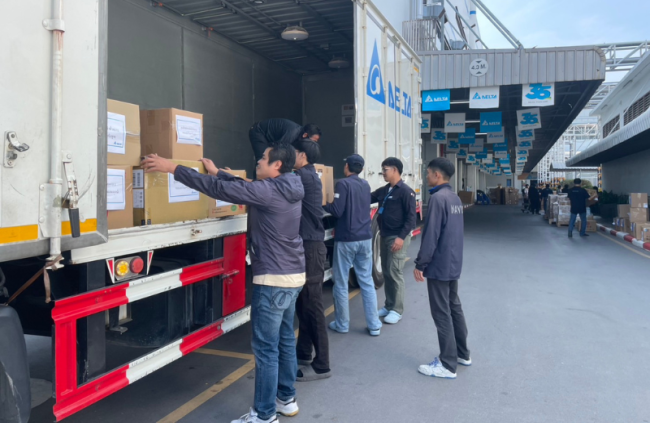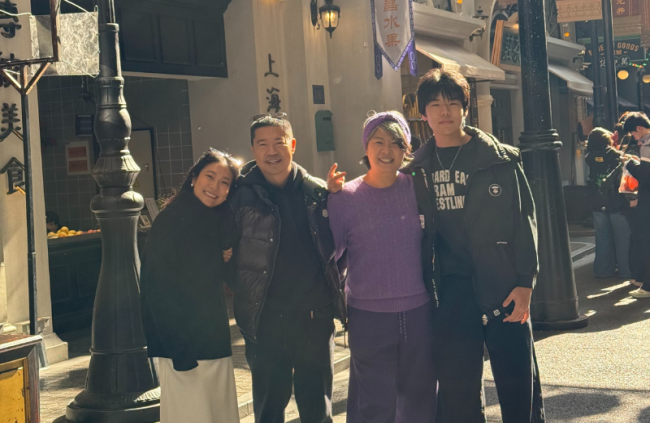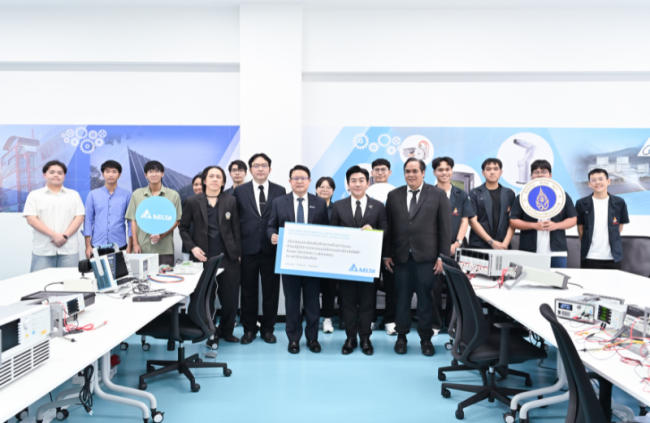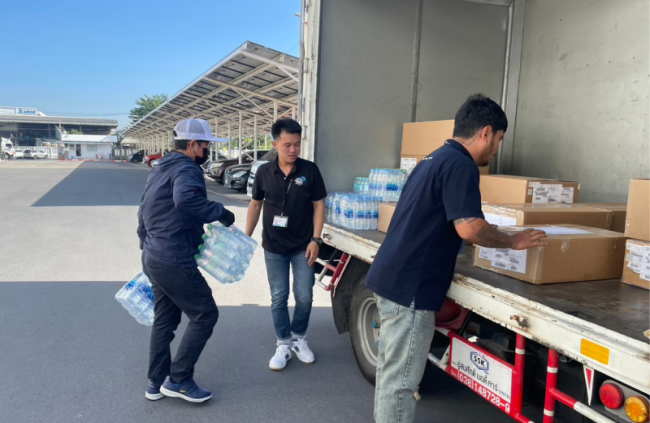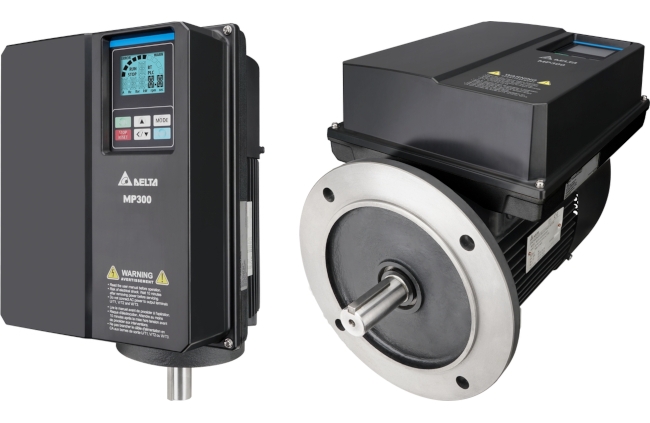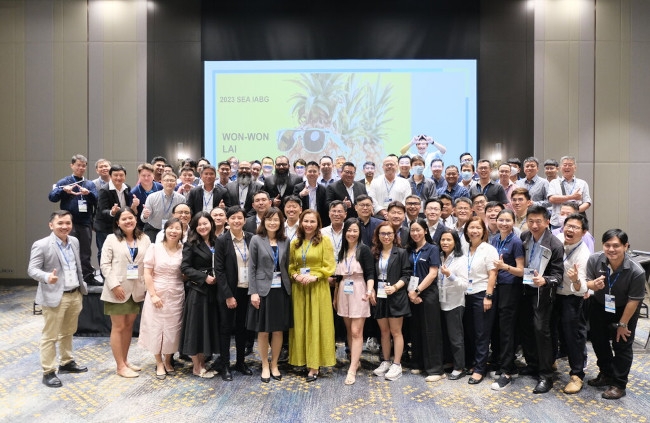Bring out the Best in People: DET Logistics and Supply Chain Director Talks on Leading a Life of Purpose and Value
By David Nakayama - Published January 19, 2023
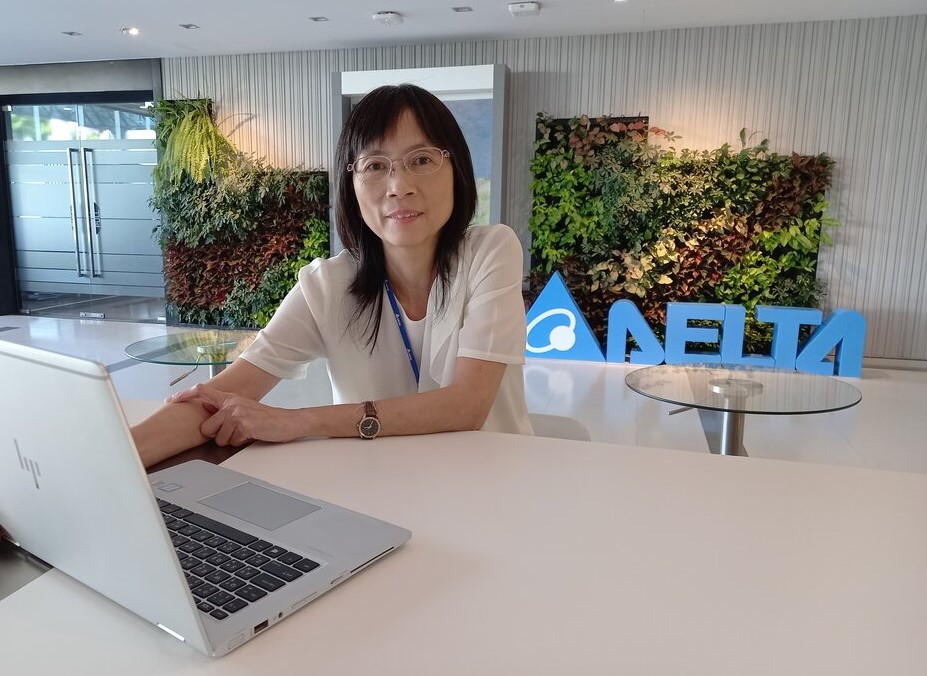
Interview with Ampai Wiwatmongkonkit, DET Logistics and Supply Chain Director
Text and Photos by David Nakayama, DET Corp Comms
Samutprakarn, Thailand, December 5, 2022- For over three decades, Delta Thailand has been a key player in developing the nation’s electronics manufacturing sector and building excellent “Made in Thailand” export products for global customers. Today, we continue to expand our manufacturing and R&D capacity to meet surging demand and the rise of Southeast Asia’s role in the global supply chain.
I recently had the honor to interview our veteran DET Logistics and Supply Chain Director Ampai Wiwatmongkonkit who has helped build our export operations from the ground up. She told her amazing story of growth at Delta as a female Thai leader and shared her insights on the industry, how to add value by supporting others and tips for a happy work-life balance.
Congratulations on your recent 30-Year Long Service Award! Can you please share with us your story about how you joined Delta Thailand and your career growth up until now?
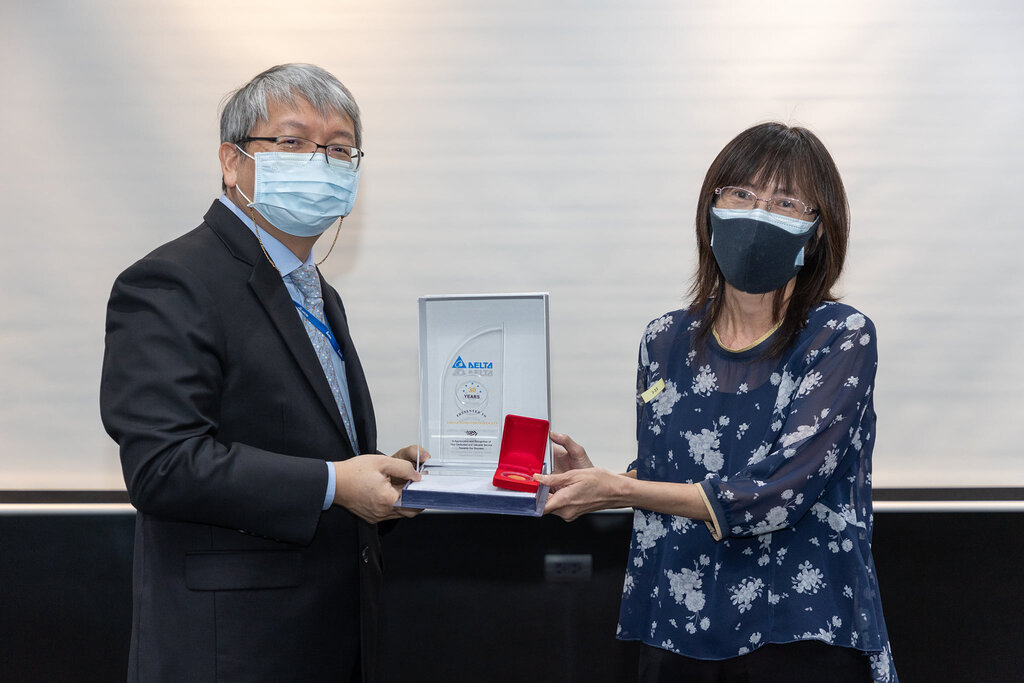
I joined Delta Thailand in November 1989. At the time, our office was a small rented property on Sukhumvit Soi 33 in Bangkok. Delta was still a small company here in Thailand so I was worried about my job security at the time, yet I still decided to join because I was paid 1,500 baht more per month than my previous job (in hindsight this is a very laughable reason).
One year later, I visited the first Delta Thailand plant in Bangpoo Industrial Estate which was around 60 rai (96,000 sqm). I was surprised at how Delta was able to start such a big factory operation even though the building foundation had only just been laid and the paint wasn’t even dry yet. At the time there were less than 100 people working in the company, a far cry from the thousands of colleagues we have today.
In July 1990, I was reassigned to the Bangpoo plant. At the time I hated the move because I used to live in the center of Bangkok and so the commute was very long – sometimes five hours or more. Despite the long commute times, I always found joy and purpose in the work that I had at Delta. There’s always a sense of purpose, urgency, and challenge in the things we do here, which has kept me motivated all these years.
Like many Delta Thailand veterans, your career had many great growth opportunities and responsibilities. What are some of the most memorable projects for you at Delta Thailand and why?
I was very proud when I made our first shipment on the 30th of November, 1990 (I remember this date well). At the time, the volume of shipments that we had was minuscule compared to the amount now, but it still required us to be all hands on deck. I remember making QA stamps myself and helping the warehouse package our products. At the time we wanted to get our products out as fast as we could which sometimes involved coming in on Saturdays and Sundays while also being on the phone all day.
The management team, especially Mr. Wang Ming Cheng, were the ones behind a lot of my success today. I sometimes would feel doubt and sadness at work but it was his full support that would always provide the encouragement that I needed. He told me that as long as I keep working hard, success will come. I took his advice to heart and so here I am today.
Delta Thailand is a major manufacturer and exporter in the domestic electronics industry. Can you please explain the scope of your work in Logistics and how it supports our Thailand and global operations?
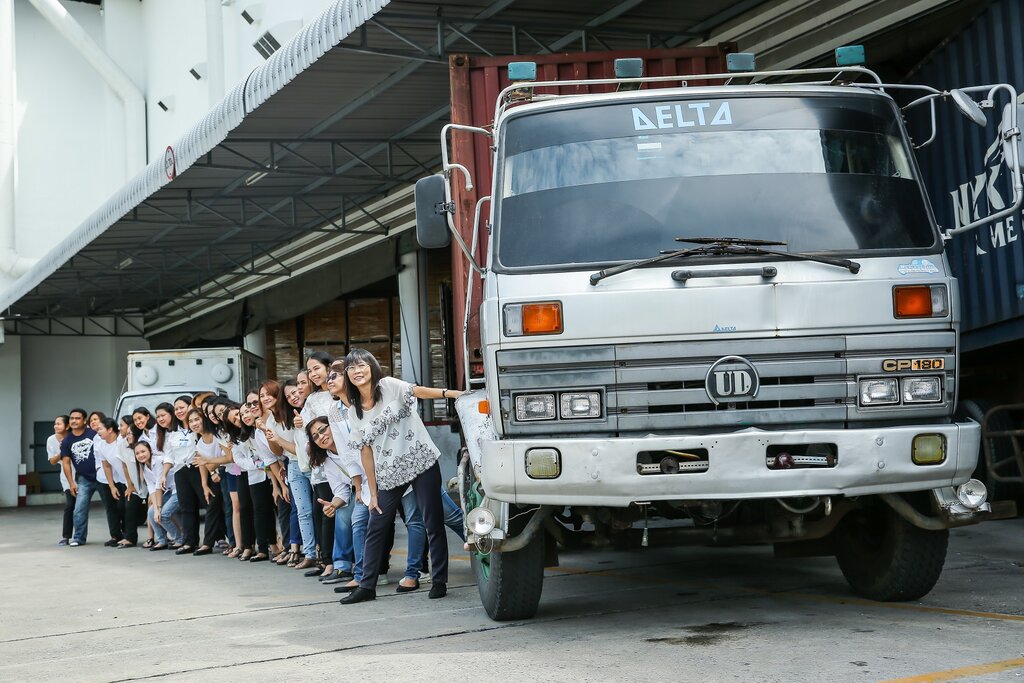 I became the Supply Chain Logistics Director at DET in 2005. Along the way, I've worked on multiple assignments and responsibilities. The biggest projects I've worked on are around 800 containers a month with sales at around 1-3.2 billion US dollars. I saw our export volume turn from a few kilos per day to 10 tons per day.
I became the Supply Chain Logistics Director at DET in 2005. Along the way, I've worked on multiple assignments and responsibilities. The biggest projects I've worked on are around 800 containers a month with sales at around 1-3.2 billion US dollars. I saw our export volume turn from a few kilos per day to 10 tons per day.
Delta has changed some of its products in the past 30 years, from component base to power units and displays and now finally to power systems and solutions. This change and innovation have forced us to adapt to the needs of the modern world, which in turn leads us to develop new ways our logistics functions and operates.
How does Logistics help our company manage supply chain risks during crises like COVID-19 lockdowns and global logistics disruptions?
COVID-19 created a lot of new challenges for us and was very detrimental to the entire global supply chain. Back then, there were no container ships or cargo planes and everything was delayed with key seaport congestion and delays to delivery that was very problematic for us.
We had to work overtime to solve all the issues and it felt almost like we were on standby 24 hours. This emergency required a lot of time and effort to ensure that our manufacturing lines had sufficient raw materials to function properly. It was a very challenging time indeed, but luckily it is mostly over now.
During your long career at Delta, how have you seen the role of Logistics evolve and what are some new ways you can support operations in the future?
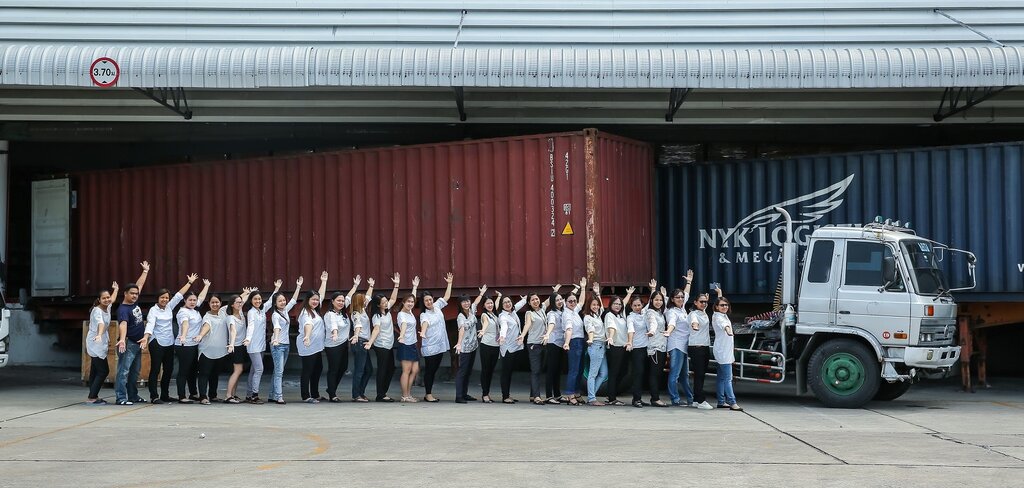 Today there are multiple means of transport that can help us send out goods from Thailand to China or Europe. Meanwhile, we can also receive materials from China to Thailand via overland transport routes.
Today there are multiple means of transport that can help us send out goods from Thailand to China or Europe. Meanwhile, we can also receive materials from China to Thailand via overland transport routes.
As for the industry, it is obvious that the current supply chain is making a transition from China to India and Vietnam and toward the Americas. This is something that I'm keeping a close eye on as a significant transition is expected to happen sometime in the near future.
As a company and department, we've been already preparing in accordance with these projected changes for a while now.
As a female Thai leader at Delta, why do you think it is important to support the success of women in the workplace?
I feel Delta provides great opportunities for women. There's a higher proportion of women in management here than in other Thai companies and women are given the same opportunities as our male counterparts.
Most conservative people would view men as the right ones for leadership positions and that their standard of work is better than women yet there are so many women who have stepped up to management and performed just as well, if not better.
At one point, Thailand even had a female prime minister. This only helped reaffirm to corporations that women are indeed up to the task of executive leadership and helped to spread this idea throughout Thai society.
I, for one, am in support of this general trend for women’s empowerment and hope to see this culture shift further embodied in Delta Thailand's work culture.
What is your advice for young Thai women who want to advance in their careers and reach their full potential?
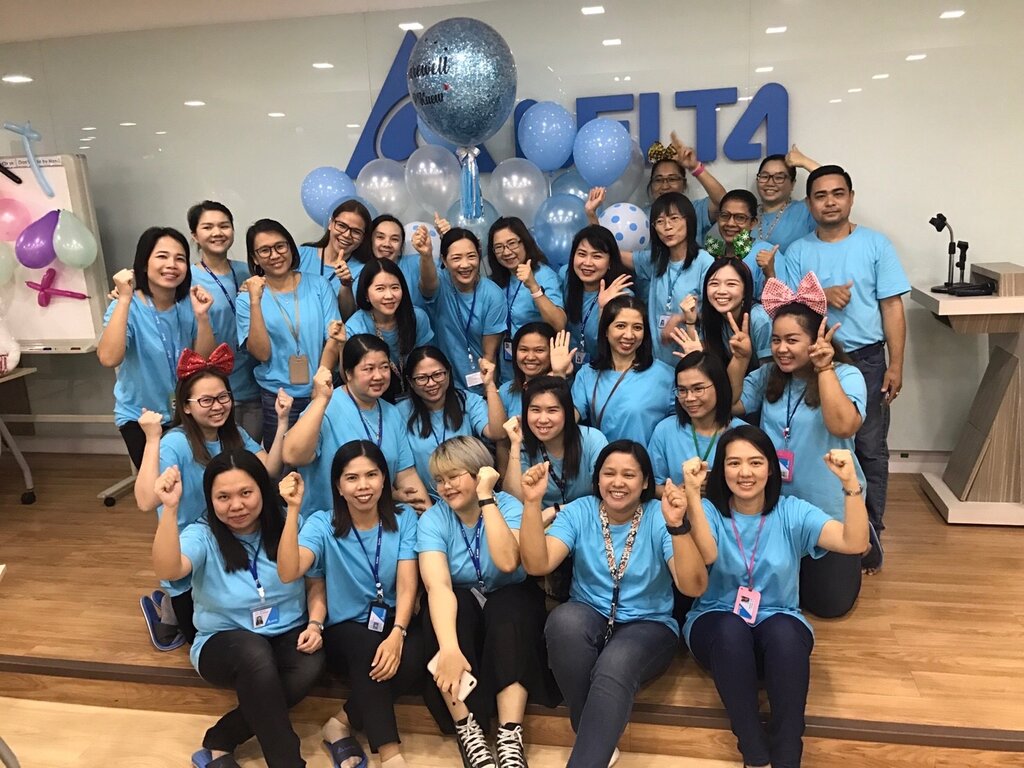 To the younger individuals who're just starting out, I would advise you to make sure that you're finding your true self in your work and following these steps:
To the younger individuals who're just starting out, I would advise you to make sure that you're finding your true self in your work and following these steps:
- Be ready to take on new challenges and calculated risks and don't be afraid to face problems head on. Even if you fail, it's a great learning experience that will make you a better person in the long run.
- Always believe in yourself. Believing in yourself will get you through all of the challenges in life and will even help you solve a lot of future problems.
- Set clear and measurable targets so that you can see and track your progress.
- If you love what you do then make sure you always put in 100% effort and put your best foot forward.
What do you enjoy besides work? How do you find a good balance between your life at work and at home?
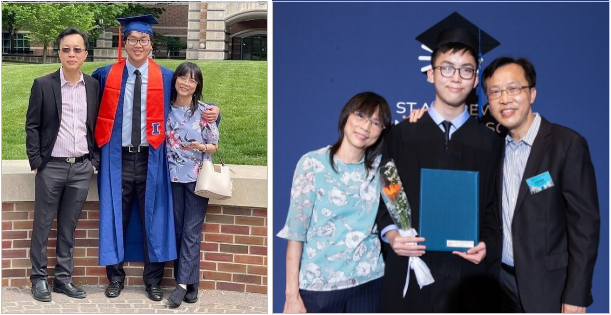
In a lot of ways, I've been very fortunate to have a great work-life balance throughout my career. I'm able to easily and seamlessly switch between my roles as a manager to my role as a mother.
I wholeheartedly believe that my family has made me a more stable and dedicated Delta employee and an empathetic leader so I attribute a lot of my success to them.
I’m very proud of my children’s growth and achievements. My eldest son graduated from the University of Illinois Urbana-Champaign with a major in Electrical Engineering and is currently working at major US semiconductor company AMD in Austin, Texas. My second son is now a first-year student at Georgia Tech in Atlanta majoring in Computer Engineering.
Finally, is there anything you would like to share with your Delta colleagues around the world?
I want to say that the value that you deliver, or the value that you help others deliver, is the most important factor to our success at Delta.
Surround yourself with the best people you meet in life, both at work and outside of work. Find the people that will nurture you, fight alongside you through challenges and support your next step in your career.

